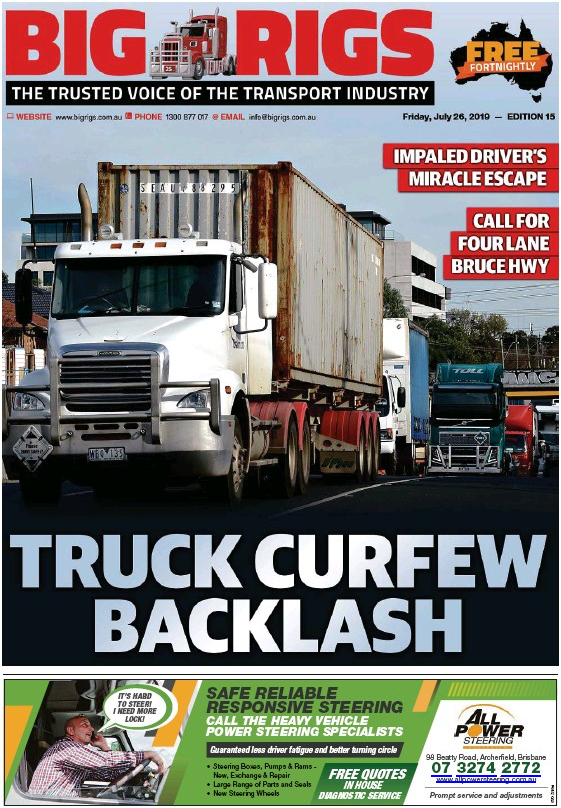
Truck driving is a dangerous job, but also rewarding for many of our professional drivers.
We often talk about the physical risks and demands of the industry – the risk of accidents, long and irregular hours, disrupted sleep patterns for example.
But what isn’t talked about nearly as frequently is how tough life on the road can be on mental health and wellbeing.
Spending so much time on the road solo for days at a time, away from friends and family can take an enormous toll. While some of our drivers accept this as part of the job, loneliness is increasingly being recognised as a key public health challenge, contributing to anxiety and depression as well increasing the risk of chronic health issues later in life. The nature of our industry means that long-distance truck drivers are particularly vulnerable.
Further pressures on mental health include exposure to road trauma and being first responders to incidents, stresses that come from managing finances and small business and sleep deprivation.
It’s clear that we need to break down the stigma around mental health – particularly in an industry where more than 95% of workers are men, who are less likely to seek help or talk about how they’re feeling. In fact, according to Beyond Blue, the number of men who die by suicide in Australia every year is nearly double the national road toll.
It’s time that we recognised that mental and physical health and safety on our roads are all connected.

That’s why I’m so proud that through Round 4 of the Heavy Vehicle Safety Initiative (HVSI) we’re directing $700 000 of funding to mental health projects directly targeted at the heavy vehicle industry.
The HVSI is a major priority of the NHVR because it provides funding for safety projects and ideas that have originated with industry. It’s about having industry as part of the solution to what is a very complex problem. We all know that there’s no silver bullet to improve safety, but anything that we can do or industry can do with us to improve safety should be encouraged and supported.
Happy, healthy drivers are safe drivers and funding mental health projects through the HVSI recognises this.
The NT Road Transport Association has received funding for their Working for a Healthier Tomorrow project, which will conduct research around the impact on drivers of being the first responders to road accidents. They will also trial delivering Stop the Bleed training workshops, equipping drivers with the information to respond to road trauma most effectively.
Injury Matters in Western Australia will receive funding to roll out their Mentally and Physically Safe (MaPS) on our Roads program which aims to raise heavy vehicle industry awareness and knowledge of the importance of mental and physical safety to prevent road crashes, and to address the impact of road trauma on mental health.
The ACT-based OZHELP Foundation will use their funding to develop a mental health and wellbeing program that focuses on proactive early intervention programs and support services. The program will target those most in need and hardest to reach – the small operators and owner drivers.
Through working together across government and industry, we can make our industry safer and healthier across the board. That’s what this program is all about.
If you or someone you know needs help, you are not alone. To speak to someone 24/7, you can call Lifeline on 13 11 14, or Beyond Blue on 1300 224 636.
> To read BigRigs online, click here

 Accessibility tools
Accessibility tools

